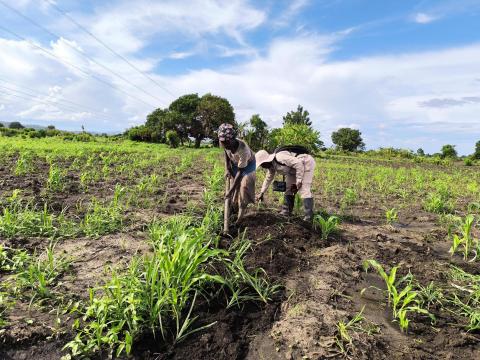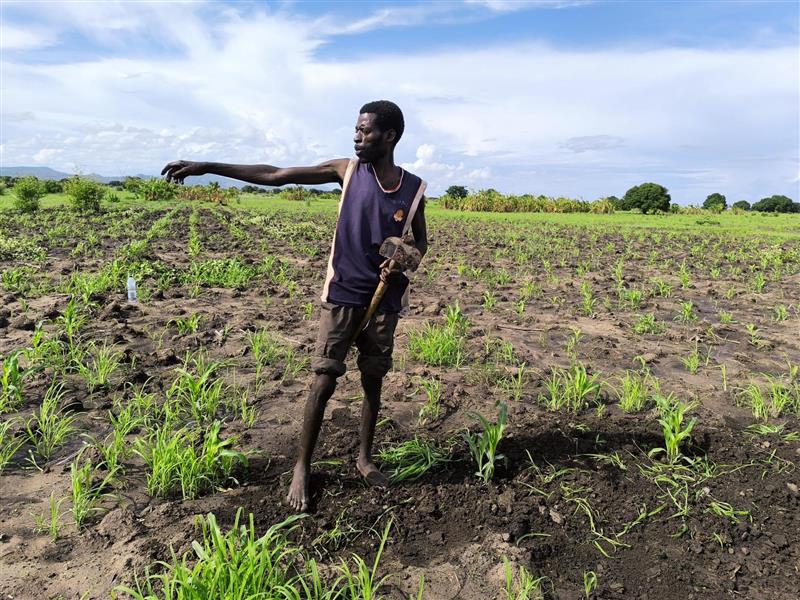Mozambique: After Strong Impact from Droughts, Green Fields Renew Hope in Tete Province

After a year of challenges and severe drought that affected the crops and food security of the communities in Mutarara district, in central Mozambique, Tete province, green fields begin to renew hope for thousands of people who were until very recently battling long periods of drought.
This year, the rains have been heavier but suitable for the crops, which brought new hope to the families. “The seeds have germinated because we had a lot of rain, unlike last year when the fields were completely dry,” shared Lina Munija, a community member from Mutarara district.
Lina and her family were among the thousands affected by food insecurity as a result of the El Nino phenomenon, and she is one of the 12,400 people who recently benefited from the distribution of maize and bean seeds in an event led by World Vision.
With the seeds distributed and the rains that started falling in the beginning of the year, life has dawned from the dry fields. The maize crops, now growing, are a reflection of the strength and resilience of the communities which, with the proper support, find the strength to overcome adversity.
 In an atmosphere of optimism, Maria Gorete from the district local authorities revealed that the seeds are germinating well, and there have been no complaints about their productivity.
In an atmosphere of optimism, Maria Gorete from the district local authorities revealed that the seeds are germinating well, and there have been no complaints about their productivity.
Despite this encouraging path, Gorete calls for additional support to help community members strengthen their resilience through the allocation of short-term vegetable seeds that would allow families to grow food much quicker and the surpluses used commercial purposes.
Additional Recourses Required
World Vision, alongside local partners, is responding to the impact of drought in the provinces of Tete and Gaza. Despite the efforts made thus far, WV still seeks funding to provide assistance to 90,000 affected people to respond to their needs in food security, livelihoods, and WASH. To achieve this, $4.9 million is required for a more effective response.